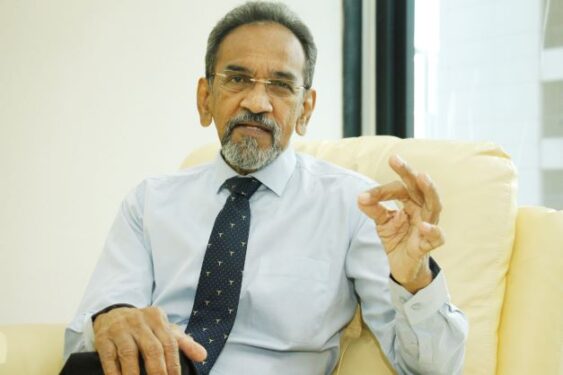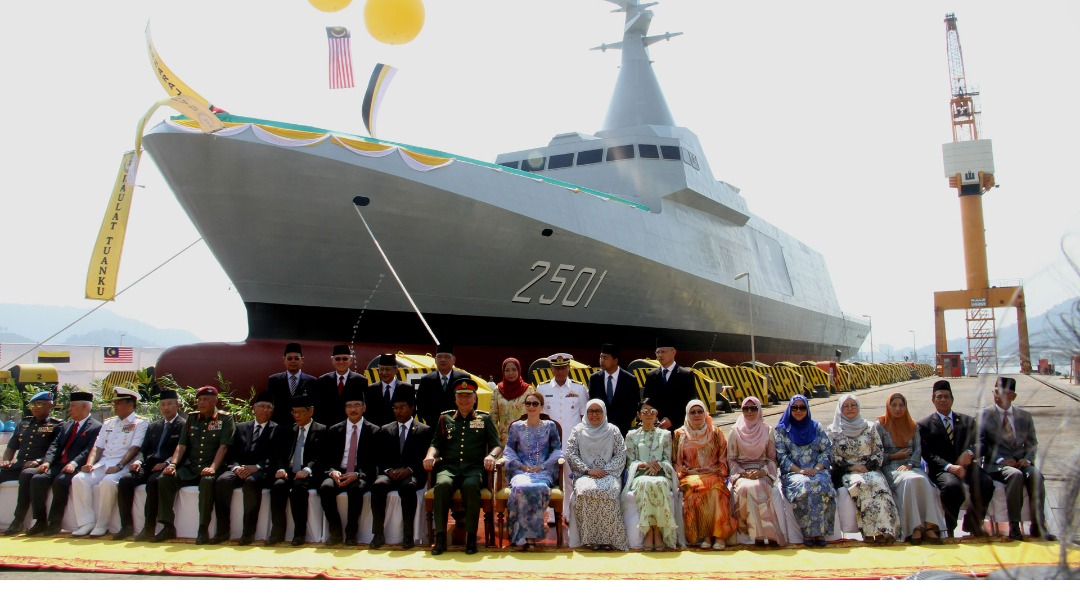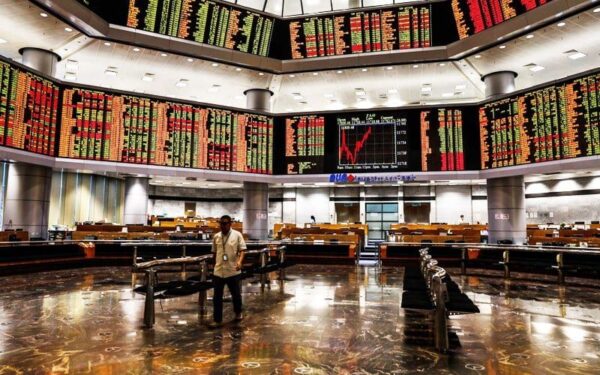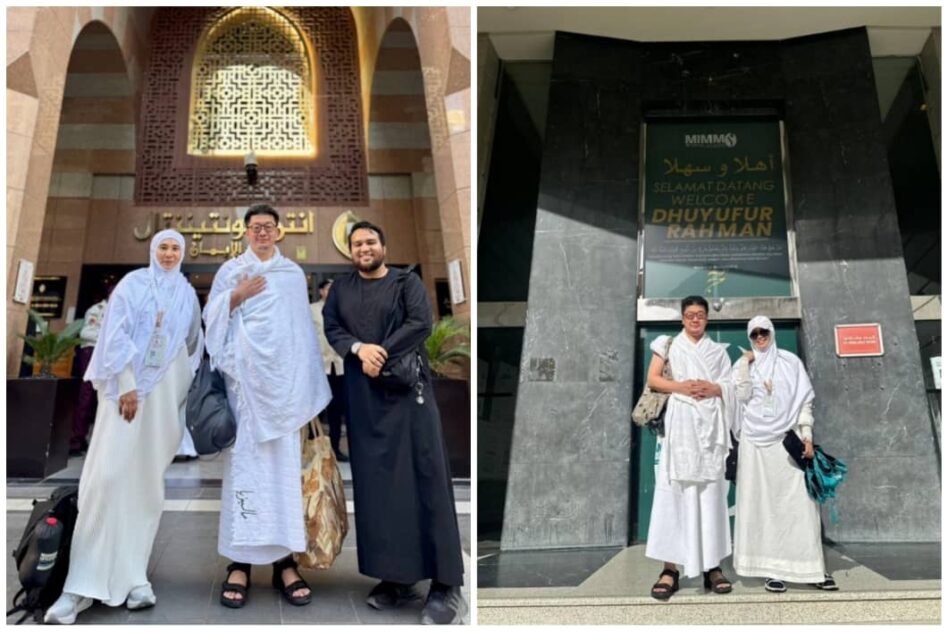THE latest billion-ringgit issue pertaining to the RM9 bil Littoral Combat Ship (LCS) project involving Boustead Heavy Industries Corporation Bhd (BHIC) is not surprising given its history in relation to its cost overruns and inability to deliver on time.
In January 2022, the Malaysian Anti-Corruption Commission (MACC) arrested several individuals including a businessman, an official from BHIC and a CEO of a company to further assist with investigations on the controversial LCS project.
Later, BHIC said it would extend its fullest cooperation to the MACC and other authorities in any investigation pertaining to the LCS project. BHIC is a 65%-owned subsidiary of Boustead Holdings Bhd.
Obviously, BHIC is not the first listed GLC to find itself embroiled in allegations of graft. In June 2017, former FGV Holdings Bhd (FGV) president and CEO Datuk Zakaria Arshad had urged the graft buster agency to probe the company’s dealings.
This followed an order by FGV’s then chairman Tan Sri Mohd Isa Abdul Samad that Zakaria and FGV’s chief financial officer Ahmad Tifli Mohd Talha should go on indefinite leave of absence pending an investigation into alleged corruption at the group’s subsidiary Delima Oil Products Sdn Bhd.
According to Isa, FGV’s external auditor – PricewaterhouseCoopers – had uncovered elements of corruption in payments due from an Afghani company, Safitex General Trading LLC for palm oil products supplied by Delima Oil. However, Zakaria denied his involvement.
More recently, Petroliam Nasional Bhd (PETRONAS) president and group CEO Datuk Tengku Muhammad Taufik Tengku Kamadjaja Aziz had warned his staff against corrupt practices on the heels of a corruption probe that saw the sacking of nine company officials.
The officials were said to be involved in an illegal scheme relating to maintenance and service contracts between PETRONAS’ upstream subsidiary and a long-standing contractor. The sacked officials had received cash payments or paid holidays to exotic locations which were borne by the contractors.
Recall that a few Petronas Carigali Sdn Bhd executives were implicated in a civil suit that was initiated by a unit of upstream oil and gas firm Deleum Bhd in December 2020.
The suit was filed over an alleged scheme to defraud Petronas Carigali in relation to multiple of its maintenance and services contracts with a Deleum’s 60%-owned unit Deleum Primera Sdn Bhd.

TI Corruption Perception Index 2021
All the allegations of graft and proven cases must be seen in the context of Malaysia’s recent dropping by five spots in the Transparency International (TI) Corruption Perception Index (CPI) 2021 to 62 out of 180 countries in terms of public sector corruption.
Malaysia scored 48 out of 100 points in the index from 51 in 2020. In 2020, the country was ranked 57th while it was placed at 51 in 2019.
Transparency International Malaysia president Dr Muhammad Mohan has attributed the poor score to:
- Rampant incidences off money politics even during elections;
- No progress on reforms to the MACC’s recommendations in 2015;
- Discharge not amounting to acquittal for high profile personalities in corruption cases and a continued lack of political will from various administrations in fighting corruption;
- Appointments of politicians without experience to head GLCs as well as the government procurement bill which is yet to be tabled in Parliament (remains outstanding);
- Dearth in progress for amendments to the Whistleblowers Protection Act 2010 besides adverse findings and government failures observed in the Auditor-General’s annual report; and
- Lack of action against public officials who abused their positions.
More MACC intervention
Elsewhere, MACC had also probed other GLCs over questionable deals. One of them was airport operator Malaysia Airports Holdings Bhd (MAHB) which had its COVID-19 Private Screening and Testing contract investigated by MACC in July 2021.
MAHB said it had received a request from MACC to provide information and documentation on the contract. The contract was awarded to BP Clinical Lab Sdn Bhd (BP Lab). It was reported that 31 companies had expressed interest in the tender and 17 submitted tender documents.
According to MAHB, 40,000 passengers a day are expected to use the new screening and testing facilities, with the cost per passenger ranging from RM60 to RM250 for Malaysians and RM90 to RM350 for foreigners. This means the testing could generate anything between RM2.4 mil and RM14 mil daily or between RM876 mil and RM5.11 bil in revenue a year.
In July 2019, Telekom Malaysia Bhd’s (TM) found itself under the scrutiny of MACC over possible irregularities in its 2014 acquisition of wireless services company Packet One Networks (M) Sdn Bhd (P1), a wholly owned subsidiary of Green Packet Bhd.
Under the deal, the GLC acquired a 57% stake in the wireless broadband service provider for RM350 mil with a further RM210 mil capital injection via newly issued redeemable bonds.
The 2014 acquisition of the capital-intensive business has impacted TM’s profits when the national connectivity and digital infrastructure provider posted its first quarterly loss in 10 years in its 3Q FY2018 with impairment provisions ballooning to RM934 mil including for assets related to P1.
Poor bribery risk performance
According to a report titled “Transparency in Corporate Reporting: Assessing Malaysia’s Top 100 Public Listed Companies” by the Malaysian Institute of Corporate Governance’s (MICG) in November 2019, eight out of Malaysia’s top 10 best-scoring public listed companies (PLC) in corporate reporting transparency are GLCs.
While it found that whistleblowing practice, commitment to relevant laws and anticorruption policy applicable to employees, directors and suppliers all scored well, PLCs’ commitment to bribery risk assessment, policy on donations and sponsorship, communications on anti-corruption and monitoring of programmes were still weak.
As such, the enforcement of Section 17A of the MACC Act on 1 June 2020 is welcomed for three reasons:
- The penalty which is a fine of not less than 10 times the sum or value of the gratification or RM1 million whichever is the higher or to imprisonment for a term not exceeding 20 years, or both;
- If the organisation is found liable, a person who is the director, controller, officer or partner of the organisation or a person who is concerned with the organisation’s management affairs at the time of the offence, is deemed to have committed the offence unless they can prove that the corrupt act was committed without their consent or connivance and that he exercised due diligence to prevent commission of the offence; and
- If charged for an offence, the commercial organisation has to prove that it had in place adequate procedures to prevent the individual/s associated with the organisation from committing such offence.
GLCs as a preferred investment choice
Much is expected from GLCs. Previously, they been a favourite investment among minority shareholders due precisely to their government-link – who else can minority shareholders trust if not the government-link factor?
It is time for GLCs to regain their lustre and the trust of minority shareholders as reliable investment choices – with nary a scandal nor perception of such.
It will always be challenging for GLCs to balance their obligations to the Government with their obligations to shareholders. Some GLCs manage this challenge well. Others, not so well.
Minority shareholders must appreciate this challenge when making their investment decisions especially when it comes to investing in GLCs. – Feb 6, 2022
Devanesan Evanson is CEO of the Minority Shareholders Watch Group (MSWG).
The views expressed are solely of the author and do not necessarily reflect those of Focus Malaysia.









